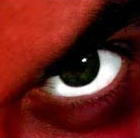That Brouhaha Over Prince
Harry’s Swastika
By James Donahue
January 2005
The political turmoil
over the tabloid photo of England’s Prince Harry with an arm band showing a swastika
is being carried to the point of extreme silliness. Harry is a rebellious 20-year-old, a younger brother to Prince William,
who wore the band as part of a costume while attending the birthday party of a friend.
It is not the first time
the Prince Harry has gotten himself into a royal scandal. His experimentation with alcohol and marijuana also made recent
headlines.
That the European media,
ultra sensitive to the international pressure to suppress anti-Semitism and anti-holocaust views, would make an issue out
of this particular non-story news story is not surprising. Anything the royal family does, short of their ultra private activities
in the bedroom and toilet, seems to get national attention.
That the family’s
public relations office quickly issued a formal apology for the “inappropriate” attire chosen by the youth for
the party seems to have been fodder for even more controversy. The Board of Deputies Of British Jews, however, said it was
pleased to receive the apology.
While Europeans still
remember the swastika as a symbol of the Nazi era in Germany,
anyone in the occult understands that this distinct mark of crisscrossing Z’s was neither the creation by, nor the property
of the Nazi party.
The swastika, in fact,
is an ancient symbol found on pottery and coins from ancient Troy
dating back to 1,000 BC. The image also has been important to people throughout the ages in China,
Japan, India and southern
Europe.
In fact, I found this
same symbol carved in rocks amid numerous other symbols left by the Anasazi people who once lived in the Southwestern area
of the United States.
Prior to the Nazi seizure
of the swastika, it was known as a powerful occult symbol representing the sun, life, power, strength and good luck. Even
at the beginning of the 20th Century the swastika could be found on coins, markings on cigarette cases, postcards
and even buildings. The swastika was worn on shoulder patches of the American 45th Division and the Finnish Air
Force prior to World War II.
The Germans also adopted
the swastika as a symbol of nationalism. It was first found on nationalist German volkisch periodicals and was the official
emblem of the German Gymnasts’ League. It later was an emblem of the Thule Society.
In 1920 Adolf Hitler
asked for a new flag to symbolize the Nazi Party. He wanted this flag to be a symbol of the German struggle. This was when
the swastika was chosen for the flag, and also a party insignia.
There are two ways of
drawing the symbol. The feet can be pointed clockwise or counter clockwise. The Nazi swastika has the feet pointing clockwise.
Some people now are attempting to differentiate between the two.
But ancient carvings
show that the direction of the swastika was always interchangeable. Since the Nazi phenomenon, however, many people like to
say the German version brings hate and death, while the counter clockwise version still holds to the ancient meanings.
When you boil it all
out, however, a symbol like the swastika is powerful no matter what its history. The swastika is, in effect, an ideogram that
stirs images in the mind. Its power has been known to cultures for centuries, and did not go unnoticed by Hitler and the people
around him.
That Hitler misused the
symbol and his own power of office should not destroy the importance of the swastika as a powerful occult image. Yet, because
the image still reminds people around the world of Nazi tyranny, this is exactly what has happened.

